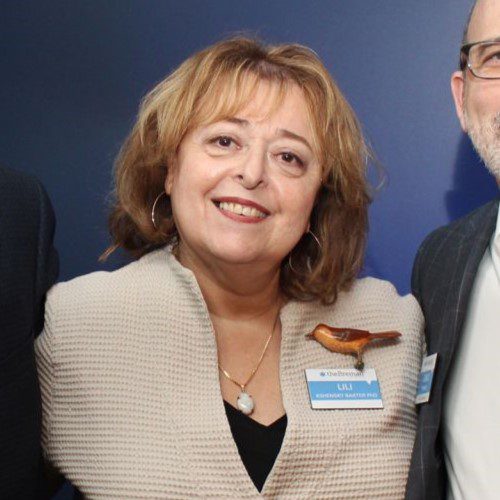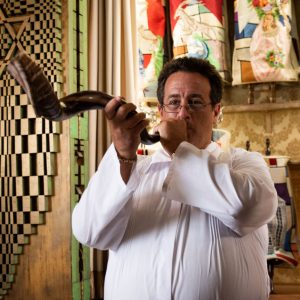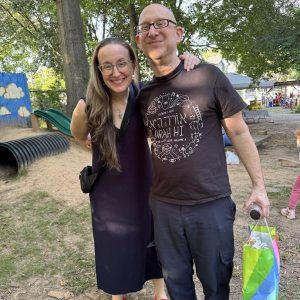A Moment of Torah with Rabbi Neil Sandler
Parshat Devarim 5782
By Rabbi Neil Sandler

Yes, our granddaughter, Remi, is entering that delightful time of a toddler's life known as "the terrible twos." Mom and Dad are hearing a growing number of "Nos." Even Susu (Susan) and Saba (me) are hearing "Nos" now when we Facetime with Remi. As many of you know from experience, these "nos," while a little bothersome, are quite welcome. They represent a normal stage in Remi's development as she begins to assert her independence. As long as Remi does not endanger herself when she says, "No!" her "Nos" are pretty harmless.
What about when "No" is not so harmless? What about when people who should say, "Yes," and move forward on that basis, effectively say "No" and do damage to their own well-being? That latter scenario describes the Israelites in the desert wilderness as Moses begins to recount their journey in the opening of Parshat Devarim. Moses rebukes his people here and elsewhere throughout his long oration that fills most of this last book of the Torah. One instance which occurs only two verses into the Book of Deuteronomy and Rashi's interpretation of it caught my attention.
In what appears to be a parenthetical statement, Moses mentions that it is an eleven-day journey on foot from Horeb (Mt. Sinai) to Kadesh Barnea, just across from the Promised Land. Ordinarily, according to Rashi, one could not shorten that trip by even one day. But the Holy One was so anxious to have the Israelites enter the Land of Israel that God brought them to its threshold in only three days! If so, why didn't the Israelites say "Yes" and triumphantly enter the Land of Israel? Because Kadesh Barnea became the site of the Israelites' very emphatic "No," and it changed the entire trajectory of their entrance into Eretz Yisrael. It was from Kadesh Barnea that Moses had sent out the spies to survey the Land. When they returned to Kadesh Barnea with a frightening report regarding the residents of Canaan, the community recoiled and offered a resounding "No!" The people would not budge. As a result, the Holy One "punished" the Israelites by making them wander in the wilderness for another thirty-eight years to allow a new generation to arise.
Those who had been slaves in Egypt lacked the confidence and ability to move forward. Apart from Joshua and Calev, who urged the community on, the Israelites lacked any sense of optimism and commitment to enter the Land God was giving them. For this generation, the result of acting only on their fears would be disastrous. They would perish in the wilderness never having entered the Promised Land. Only a new generation of Israelites would have the necessary tools of optimism and commitment to be able to enter the Land and possess it.
Yes, friends, life can be difficult. I have discovered that transitions can be challenging. The Holy One endows us with abilities to confront these uncomfortable times and move forward—among them resilience and a hopeful spirit. I have learned that "No, I can't" can be comfortable sometimes, but only "Yes, I can" and a commitment to move forward can take us to where we ought to be.
Shabbat Shalom.






























